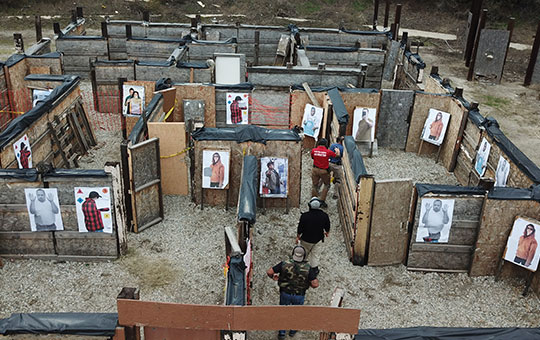
Security professionals working in high-risk environments ensure the protection of people under deadly threat. The present world faces threats to personal security which come from organized crime groups and terrorist organizations and personal hate crimes. The proper training for executive protection agents requires essential skills and knowledge to minimize threats faced by them.
Training for executive protection professionals centers on mastering threat assessment strategies combined with risk mitigation protocols. The process requires identifying possible threats so security teams can create complete security plans that reduce or eliminate their impact. The training program transforms students into bodyguard experts by instructing them in complete security assessment and risk identification along with defensive strategy implementation.
Executive protection training provides students with diverse competencies such as defensive driving methods first aid skills firearms safety instruction and physical fitness development. These competencies provide dangerous situation responders with essential abilities to act promptly during threats that endanger their clients. Students gain essential abilities for their future work as executive protection agents through practical training integrated into their academic curriculum.
The essential part of executive protection training consists of efficient communication methods. Clients and security personnel along with response teams need to maintain clear and efficient communication when dealing with crisis situations. The educational program focuses on developing conflict resolution abilities and threat negotiation methods and safety coordination with police departments and emergency response organizations. Executive protection agents who develop strong communication abilities will successfully manage dangerous situations to protect their clients.
The training for executive protection includes professional conduct and discretion in addition to physical conditioning. Sensitive information entrusted to executive protection agents demands absolute confidentiality from them. The emphasis within education programs exists on maintaining ethical professional standards which helps clients establish trust and protect their reputation.
Executive protection training requires crisis management as an essential core subject. Agents need to learn how to evaluate dangers properly so they can respond correctly during emergencies and maintain their clients’ safety. The training program provides agents with professional and effective crisis management abilities through essential skills and techniques.
Executive protection agents use their training and experience with expertise to make informed decisions and take decisive action in crisis management scenarios. Security agents leverage their abilities to efficiently handle crisis situations which protect both themselves and their clients against security threats.
Executive protection training specifically designed for individuals operating in risky environments provides them with essential security solutions. The thorough training teaches agents to assess threats and protect both their clients and themselves through bodyguard techniques and technical capabilities and communication methods and crisis management procedures against contemporary dangers. The extensive training program teaches executive protection agents how to detect security threats and reduce risks so they can protect their clients safely.